“What value do wilderness trips have in your memory?” I ask my wife, Tory, over a Saturday afternoon lunch in our urban backyard as we contemplate the coming summer and the paddling trips we have planned.
Tory lets out a deep sigh, as if I’m asking her to lift anvils.
“You are the most philosophical person I know,” she groans, taking a bite of her B.L.T. “I don’t know how you live with yourself.”
“I can’t help it,” I tell her. “Seriously though, what do your past trips mean to you? Do they have any present value?”
I have been dredging up notebooks and memories of my 80-day kayak trip on the West Coast because I want to write a book about this 17-year-old adventure. I think of it as a midlife-crisis project. The trip seems extra valuable to me now simply because it would be so impossible to repeat.
When my paddling partner, Dave, and I had boastfully called it the trip of a lifetime, we couldn’t have imagined how right we were. Who has that kind of time now? Not a home-owning, forty-something-year-old dad of two.
The central question I’ve been struggling to answer before I can write about my trip is what relevance the memory of it has to my life now. Thinking about this has made me hyper-aware when we go on trips, we do not just have experiences, we’re also creating memories. Yes, this seems dully obvious, but how often do you think about what the point of a trip will be once it’s over? Would we approach trips differently if we were conscious we were in the process of creating memories?
“Well, I guess trips are mementos of a life well-lived,” Tory concludes.
“So, does it matter how many you went on, or could you have just gone on one?” I’m looking around at the city backyards surrounding ours. The neighbors’ houses overlook us like we’re in a fishbowl, contrasting sharply with the contents of my thoughts—deserted and wave-battered Pacific Coast beaches, granitic islands rising out of Canadian Shield lakes, sheltered by towering white pines.
“No, it matters. The more, the better,” she tells me.
“So, trips are like the contents of a treasure chest or a storehouse of memories you horde?”
“Yes, like shiny pebbles or a squirrel’s nuts. I can bring them out and shine them and admire them from time to time.”
“But you’re not admiring them now?” I ask.
“No, not at all. I only really think about them when I’m going on another trip. That’s my opportunity to bring them out and look at them again,” says Tory.
This is a big difference between Tory and me. She tucks her trip memories away like the way she folds her smoky quick-dry clothes into a bottom drawer, and dutifully busies herself with the alternate reality of city life. Her memories are like photos stored away in an album—nice to have but usually forgotten. Whereas I’m always turning mine over and caressing them like Gollum’s one ring, pondering their meaning, wondering if my current life does them justice.
My relationship to memories is not as pragmatic as my wife’s, but I can’t imagine life any other way. Trip memories are my guide and inspiration—for the work I do, our choice to live close to the lake, the dwarf white pine planted in our front garden beside a chunk of granite we hauled home in a canoe barrel from Temagami. Wilderness memories shape who I am.
My friend Dave says thinking about the 80-day trip we shared makes him feel melancholy because it was the best 12 weeks of his life. But it’s also inspiring, a constant reminder of how good things can be.
Trip memories make me frustrated too, because I compare the shortfalls of my current life to the highlight reel of my past. I sometimes run roughshod over my days, castigating them precisely because I’m not outside on a kayaking trip or in a beautiful wilderness area. But of course, why else do we go on trips than to seek experiences that will stand out as extraordinary and more memorable than regular life?
I recently reminisced with a friend about a trip to France. I remember hiking the glaciated flanks of Mont Blanc and the white cliffs of the Mediterranean Sea. He can remember every model of Peugeot and Audi we drove. Human perception is selective. We only notice a small fraction of what is going on, and we only remember what we notice.
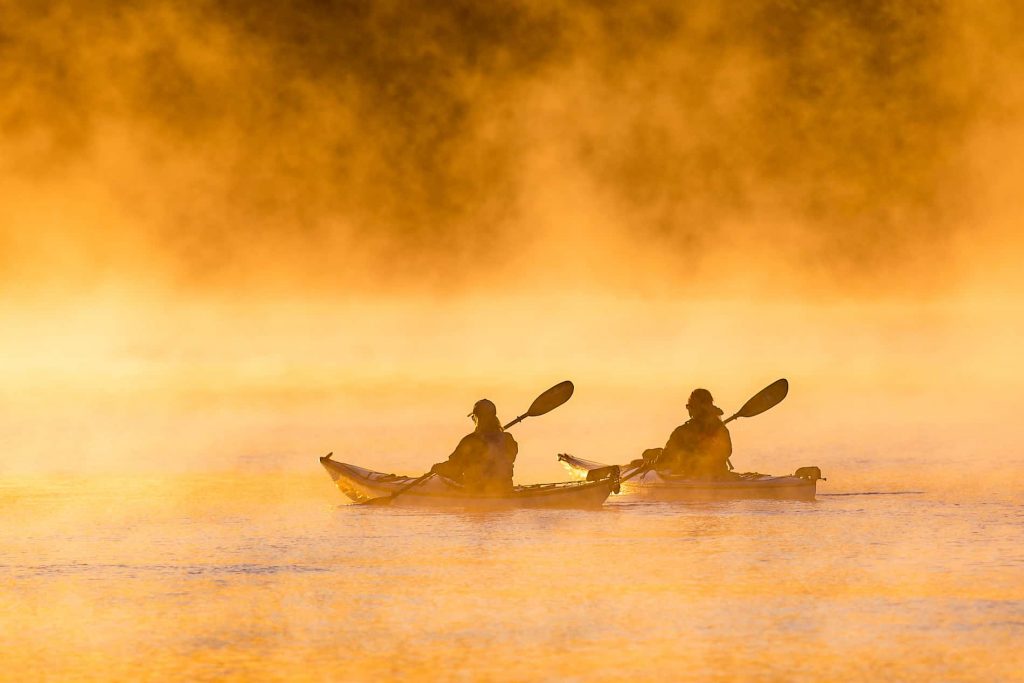
Thinking about this conscious creation of memory gave me reason to pause the other day on the way home from dropping my kids off at school. I anxiously waited for the light to change to cross the street, annoyed at wasting 30 seconds. Then I had a meta-awareness of some future time when I will struggle to remember this particular day. “I’ll probably wish I’d been a bit less impatient and actually noticed something,” I thought. I took a deep breath and looked around. It was a dull grey spring morning. Cars zipped towards downtown in rush-hour traffic. People stood idly at the bus stop. A billboard advertised a new brand of watch. That was weeks ago, and I can still remember it crisply.
We can choose what and how we remember. And we should choose wisely because memories are the building blocks of our selves—our identity, our choices, our perception of what we can and can’t do. “Knowing I can do things next year even if I was scared of them last year,” is my 10-year-old’s response to my question about trip memories. “Like the jumping rock. I know I can do it this year because I did it last year even if I was scared, and it was really fun.” Her trip memories are place markers of where she left off the summer before.
Our family trip this summer involves a very long journey to a hard-to-get-to lake in the heart of the Boundary Waters wilderness. This is Tory’s inspiration. We could go anywhere, but this lake is calling to her, out of her metaphorical treasure trove of memories. She went there as a teenager on summer camp trips, and she brought me there the year we were engaged. Now we’ll return with our kids, to the same perfect island campsite with a good jumping rock.
It will feel magical to arrive at this place we’ve been holding in memory for the past 13 years and discover that it’s still there, like we’re paddling into some parallel universe where all our dreams exist in reality. We’ll set up our tent in the same flat spot and tie our hammock to the same trees overlooking the water, and in the process knit our new experiences together with the previous ones. We’ll tell our kids about the times we went there before, so our stories will become a part of their memories too. They’ll measure their boldness against the jumping rock. And then we’ll all return to our regular lives, each carrying something slightly different home with us. And long after our sunburns fade and the seasons change, this will remain.
Tim Shuff is a former editor of Adventure Kayak magazine, and a firefighter on the north shore of Lake Ontario.
“Sometimes you will never know the value of a moment until it becomes a memory.” —Dr. Seuss | Photo: Andy Zeltkalns



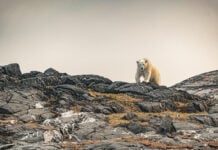
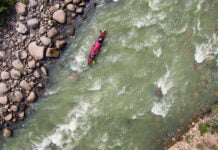
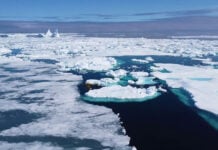
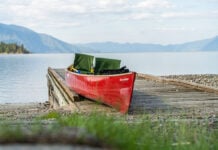


very interesting articles thanks for sharing it with us i really enjoy your magazine and the stories i reside in fl. primary a sea kayaker on occasions go up to north carolina and do some very amature white water i vacation in beautiful costa rica sort of my 2nd home and I would recommend to any body especially paddlers go to tico times to get all the latest in fo take care all and thanks for your great articles sincerely ken hillier
Tim Shuff: did you write your book about the 80 trip? If so, what is it called and where can I find it?
Thanks!